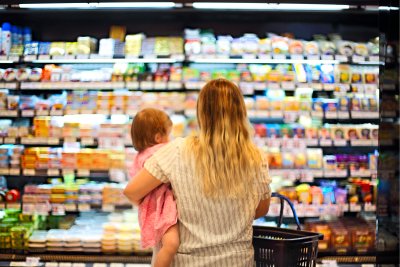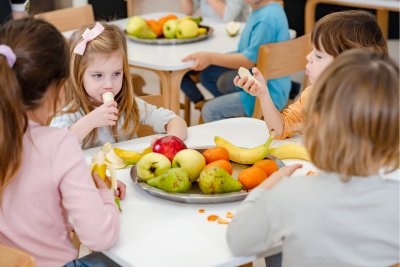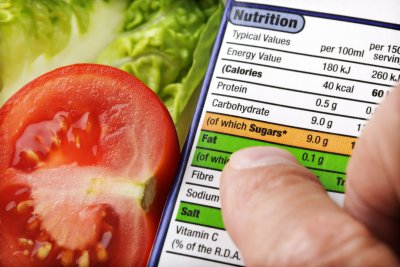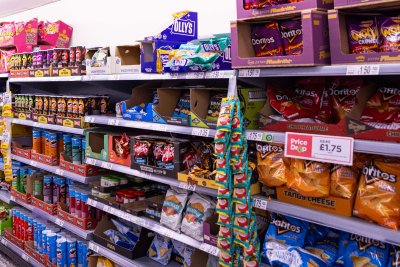 Photo by Gustavo Fring from Pexels
Photo by Gustavo Fring from Pexels

Independent food banks continue to see huge increases in need for food parcels during Covid-19
Research from Sustain member the Independent Food Aid Network (IFAN) has found that food banks in their network have seen huge increases in demand for food parcels.
- 177% increase in the number of 3-day emergency food parcels distributed by independent food banks comparing May 2019 to May 2020.
- The number of 3-day emergency food parcel distributed in May was 148% higher than in February 2020.
- Independent Food Aid Network member organisations know that worse is still to come and call on the Prime Minister to stop relying on food aid charities to pick up the pieces.
IFAN analysed data contributed by 100 organisations operating 191 independent food banks across 80 local authorities in England, Scotland and Wales. The number of 3-day emergency food parcels distributed has increased by 177% comparing figures from May 2019 and May 2020.
Compared to February 2020, the number of food parcels distributed was 46% higher in March, 126% higher in April, and 148% higher in May. The number of people accessing independent food banks has risen by 135% comparing May 2019 and May 2020.
IFAN member food aid organisations are calling on the Prime Minister “to take immediate and urgent action to reduce the rapidly growing number of people needing our support because they are unable to afford to buy food.”
They say “Many of our teams have been running beyond capacity for months as we have responded to the immediate crisis in extremely challenging circumstances - but the lifting of lockdown does not signal a reprieve for us.”
They end their letter “Food banks and thousands of other food aid organisations provide vital support in communities across the UK but they should not be relied on to continue to pick up the pieces.”
Mary McGinley of the Helensburgh and Lomond Foodbank, Agyll and Bute said:
"We must ensure that those who are already finding it impossible to meet their current living costs due to low incomes or benefits are not left short of food or heating as the cost of living rises. They together with the large number of new unemployed should not have to rely on charity to feed themselves or their families. The voluntary sector should not be expected to be the safety net for those finding themselves without employment due to the impact of Covid-19."
Sam Gilchrist of the West Northumberland Foodbank, Hexham said:
“Every week people who have never had to use a food bank before are coming to us for help as a direct result of the Covid-19 lockdown and the toll it has taken on people’s jobs and livelihoods. At this point I can only see a rise in demand on our voluntary services and we are bracing ourselves for further job losses and yet another a rise in poverty.”
James Quayle of the North Paddington Foodbank, London said:
“More and more people are in need of our help and we can’t see an end in sight. What will make all the difference is to prevent the need from happening. Our clients need enough money to get by and to be able to afford to buy food.”
Joyce Leggate of Kirkcaldy Foodbank, Fife said:
“April’s increase in demand has not diminished with many households finding themselves relying on the benefit system for the first time. So many households who have been barely coping in the past were plunged into poverty and there is little prospect of employment in the near future as the devastating impact of Covid-19 on the economy is realised.”
Sabine Goodwin, Coordinator of the Independent Food Aid Network said:
“Food bank teams have provided incredible and vital support during the Covid-19 crisis but it’s clearer than ever that short-term fixes are not the answer. Food banks should not be relied on to fill the ever-growing gap. Now is the time to focus on what’s causing people to fall into and become trapped in poverty and to address the policies driving food bank use in the first place. The Chancellor’s concessions are welcome but they do not go anywhere near far enough to tackle the desperate crisis that is unfolding.”
- The Independent Food Aid Network (IFAN) connects, supports and advocates on behalf of a range of 335 independent frontline food aid organisations. Its membership includes 276 organisations operating 368 independent food banks regularly distributing emergency food parcels at least once a week. IFAN’s vision is of a country which doesn’t need emergency food aid and in which good food is accessible to all.
- IFAN has been responsible for identifying at least 889 independent food banks operating across the UK. We know as a result that at least 41% of UK food banks operate independently of the Trussell Trust’s network of 1,250 food banks.
- IFAN first collated data from independent food banks based in Scotland alongside A Menu for Change – www.foodaidnetwork.org.uk/scotland-food-bank-data
- IFAN last reported a 175% increase in the number of emergency food parcels distributed comparing April 2019 with April 2020 – www.foodaidnetwork.org.uk/ifan-data-since-covid-19
Food Poverty: Championing people-powered projects that tackle the root causes of food poverty.
Sustain
The Green House
244-254 Cambridge Heath Road
London E2 9DA
020 3559 6777
sustain@sustainweb.org
Sustain advocates food and agriculture policies and practices that enhance the health and welfare of people and animals, improve the working and living environment, promote equity and enrich society and culture.
© Sustain 2026
Registered charity (no. 1018643)
Data privacy & cookies
Icons by Icons8







